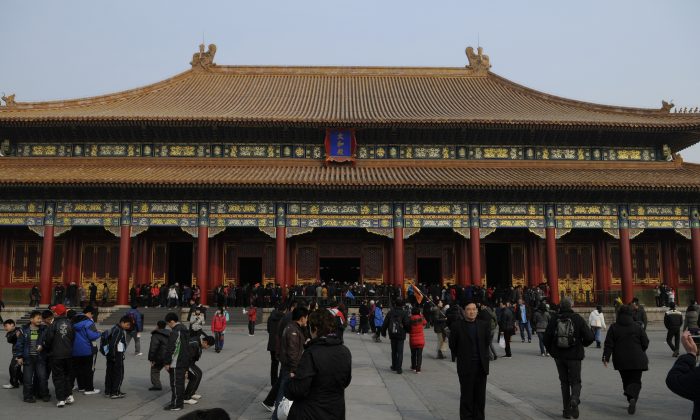The effects of the measures won’t offset weak consumer spending in China, experts said.
The Chinese regime announced a lower minimum purchase amount on April 27 for tax refunds for foreign tourists and other measures to boost consumption amid a tariff war with the United States. Analysts are skeptical about their effect.
China’s Ministry of Commerce and five other departments issued the new policy, which lowered the threshold for tax refunds from 500 yuan ($69) to 200 yuan ($27.50). Foreign travelers who purchase tax-refundable items worth 200 yuan or more at the same eligible store on the same day are eligible to apply for what officials call the departure tax refund.
At the same time, the limit for receiving the refund in cash was raised from 10,000 yuan ($1,375) to 20,000 yuan ($2,751), and there are no restrictions on refunds via bank transfer.
The notice also included other measures to boost foreign tourist spending in China, such as expanding the coverage of tax refund shops and encouraging various regions to add tax refund shops in large shopping districts, pedestrian streets, tourist attractions, resorts, airports, passenger ports, hotels, and other such locations.
Eligible travelers include foreigners or residents of Hong Kong, Macao, and Taiwan who have stayed in mainland China for no more than 183 consecutive days.
Sheng Qiuping, the regime’s vice minister of commerce, said at a press conference that last year, inbound consumption by overseas tourists accounted for about 0.5 percent of China’s GDP, while the numbers in other major countries accounted for between 1 percent and 3 percent of GDP.
Weak Local Consumption
In recent years, China has been experiencing a trend of low consumption as Chinese shoppers are tightening their spending and choosing to buy cheaper products amid the sluggish economy.
Beijing’s social consumer goods retail sales in March were 104.9 billion yuan ($14.4 billion), a sharp drop of 9.9 percent compared with March last year, according to public data. In the first quarter, Beijing’s consumer goods retail sales were 345.9 billion yuan ($47.57 billion), a decrease of 3.3 percent.
Shanghai’s retail sales of consumer goods in March were 128 billion yuan ($17.6 billion), a drop of 14.1 percent year-over-year. Retail sales in the first quarter fell slightly by 1.1 percent.
The effect of the regime’s measures on these trends will be negligible, U.S.-based economist Davy J. Wong told The Epoch Times on April 28.
“It may have a little effect in the short term, but the overall problem cannot be solved by such minor repairs. The downgrade in domestic consumption is caused by falling income, youth unemployment, and a decline in social confidence, and foreign tourists’ consumption is a drop in the bucket.”

An employee uses balloons to attract customers at a fashion retailer during a promotional sale at a shopping mall in Shenzhen, China’s Guangdong Province, on Nov. 1, 2019. Andy Wong/AP
Xu Zhen, a senior professional in China’s capital market, told The Epoch Times on April 28, “In 2024, 80 percent of overseas tourists [were] from Hong Kong, Macau, and Taiwan. The deterioration of China’s economy has more or less impacted the economies of Hong Kong and Macau, and the spending power of these tourists is also limited.”
He agreed that “relying on the tax refund policy for overseas tourists to boost the economy is a drop in the bucket and is far from making up for the losses caused by consumption downgrades.”
Wong added that the new measures are a contingency strategy to cope with the dual pressures of weak domestic demand and shrinking external demand, rather than a confident long-term open policy.
“On the surface, the measures seem to promote tourist shopping, but in essence, the regime hopes to use ‘short-term, quick cash consumption’ to offset the pressure of weak domestic economy and declining exports,” he said.
The contribution of foreign tourist spending to China’s GDP will be very limited, Wong said. “China’s security risks, visa reviews, and international image issues outweigh its shopping appeal, and lowering the tax refund threshold alone will not be enough to reverse the overall trend,” he said.
“What China really needs is to rebuild domestic consumer confidence and improve its external image, economic system, and rule of law, rather than just relying on tax rebates of a few hundred yuan to attract the world,” he said.
Luo Ya and The Associated Press contributed to this report.










Leave feedback about this